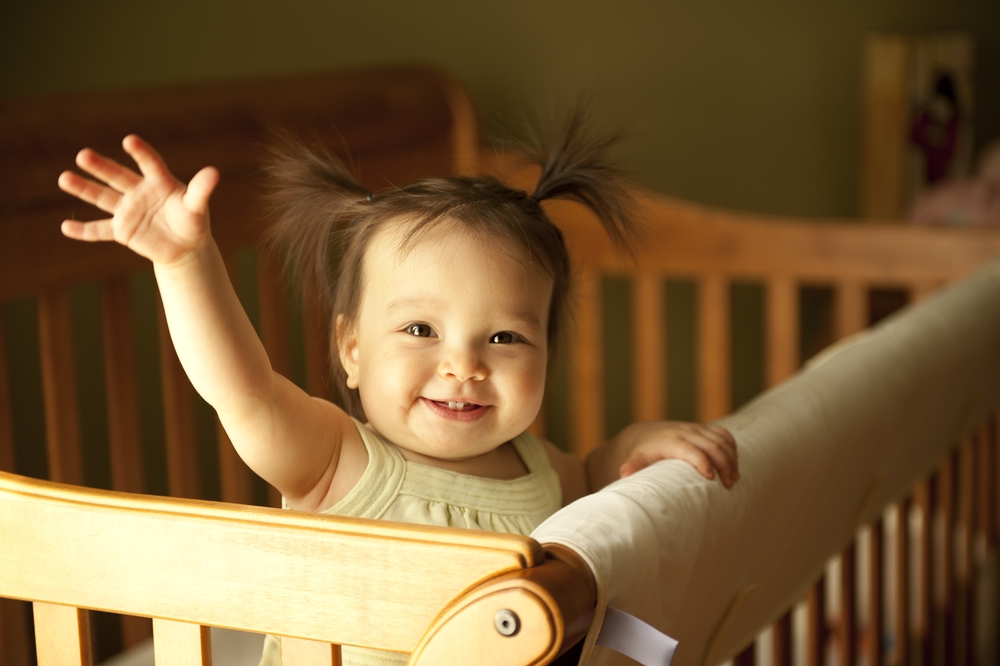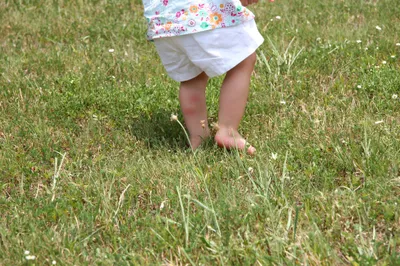You’ve all seen the baby milestone charts at the doctor’s office, or you’ve received a lot of unsolicited advice from other parents about what your baby should be able to do at what age. This kind of outside pressure can make a new parent paranoid about their child’s development. The truth is there’s a wide range of “normal” regarding the timing for infants and toddlers to acquire new skills.
Psych Central says in an article that development charts can raise our fears, but perhaps a bigger issue is that parents can be “inherently competitive” and become antsy if their child isn’t able to achieve a certain task by a certain age like others in the group. It’s all about passing the milestone that’s important—not so much about exactly when it happens, notes Psych Central. Here are five developmental milestones that your child doesn’t need to rush into for success…
1. Crawling
This is usually the first way your baby learns to get around without rolling or waiting from a ride from mom or dad. Parenting magazine makes this interesting point in an article—because more parents are putting their babies to sleep on their backs due to safety recommendations, infants are developing upper body strength later and subsequently crawling around later.
A 2009 Scientific American article even went as far as to say that crawling isn’t necessary to a baby’s normal development in later years. They used the Au hunter-gatherers of Papua New Guinea as an example—their children are carried until they can walk, with no ill effects. Meanwhile, many experts say your baby should learn to crawl anywhere from 7- to 10-months, but that number can be all over the place.
2. Walking
Of course crawling usually leads to walking, but again this is an ability that children will reach at different times. Most experts also agree that your child should take its first steps between 11- and 15-months of age. However, some children walk before that and some don’t walk until well after that time. So don’t fret—enjoy this time when you can still easily catch your little one!
The Mayo Clinic assures parents not to worry if your baby lags behind other children who are upright at a year old. Instead it suggests engaging your baby from an early age through playing in a safe and exploration-friendly environment to promote development. However, the Clinic also says to use your parental instincts and if something doesn’t seem right, consult your doctor.
3. Talking
Your baby may be on the quiet side or he or she may always be busy babbling away, and both are acceptable behaviours. The Mayo Clinic says babies aged 10- to 12-months can start understanding verbal requests, as well as speaking recognizable words that aren’t just “baby speak”.
If you’re really worried about your child’s inability to express himself or herself through words, consider this: Albert Einstein apparently had speech difficulties as a child. In fact, he seldom said anything and when he did, it came out sluggishly. According to at least one article, Einstein had trouble speaking properly until he was 9-years-old! And he turned out okay…
4. Eating Solid Food
While you’re busy breastfeeding or bottle-feeding junior, your neighbor might be bragging about how their little one is already eating cooked carrots. Keep in mind babies will get all the nutrients they need through breastfeeding beyond 6-months, when solids can gradually be introduced.
The International Breastfeeding Centre notes that babies will need other sources of iron by 9-months, and some infants will start to require other sources of food to keep up with growth. There is no perfect time to start your baby on solids. The Centre says to start solids when your baby seems to show an interest. For example, when he or she reaches over to your plate and tries to nab a cooked carrot, it may be time to introduce solid foods.
5. Sleeping Through the Night
You’ve heard all about sleep training, and the different ways to get baby to sleep through the night so you can finally fall asleep and not live off coffee at work. But here’s the deal—all babies are different, and some will sleep quietly from 8 p.m. to 8 a.m. early on, while others will put up a mighty fight.
The National Sleep Foundation reports that many babies can sleep for 8- to 12-hours by the time they’re 6 months old, with the majority snoozing all night without major interruptions by 9-months. But the Foundation also notes that social issues can affect a baby’s sleep, such as how connected and secure your baby feels. Oh…and just when you think you’ve mastered your baby’s sleep schedule, the “sleep regression” hits and you’re temporarily back to square one.








